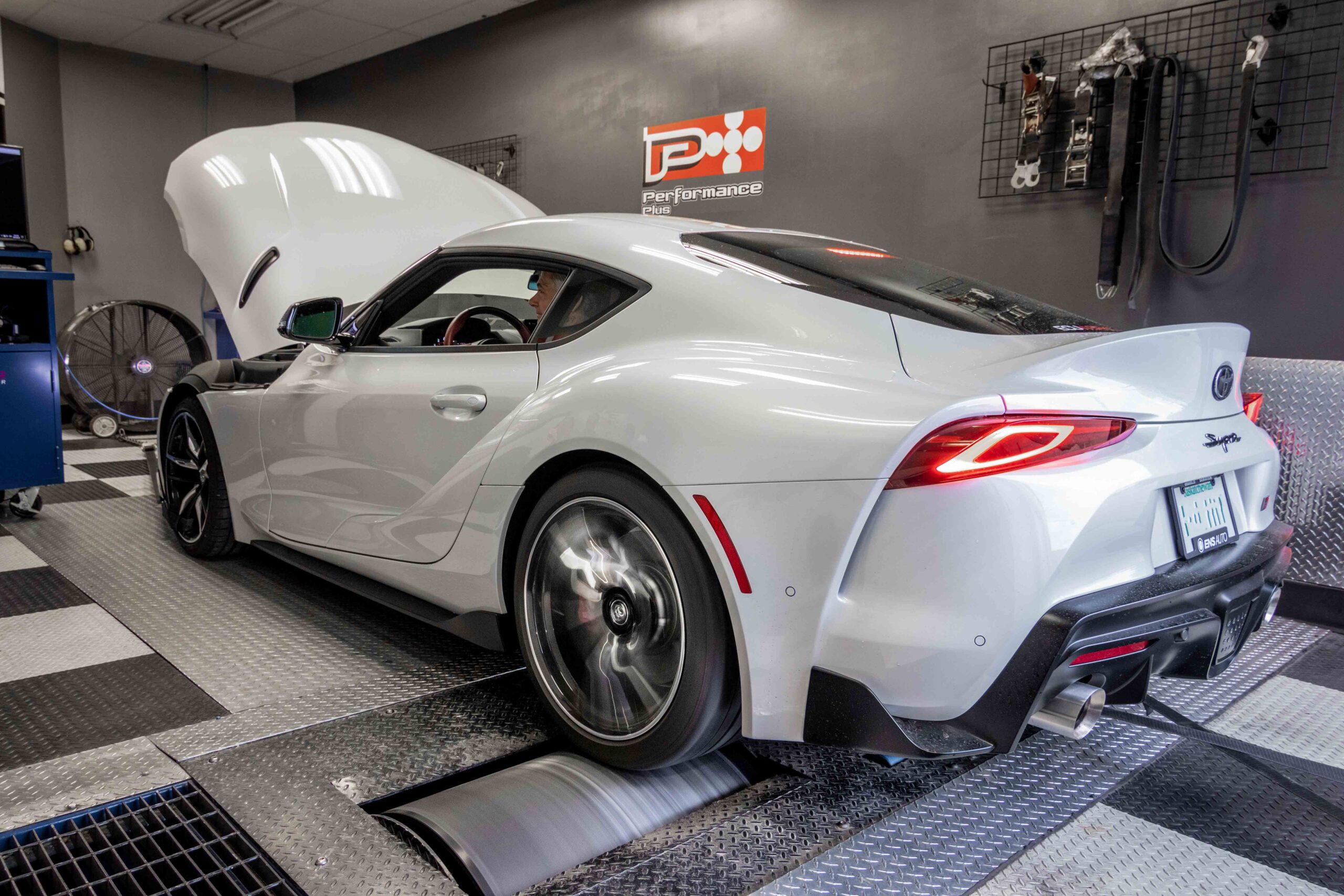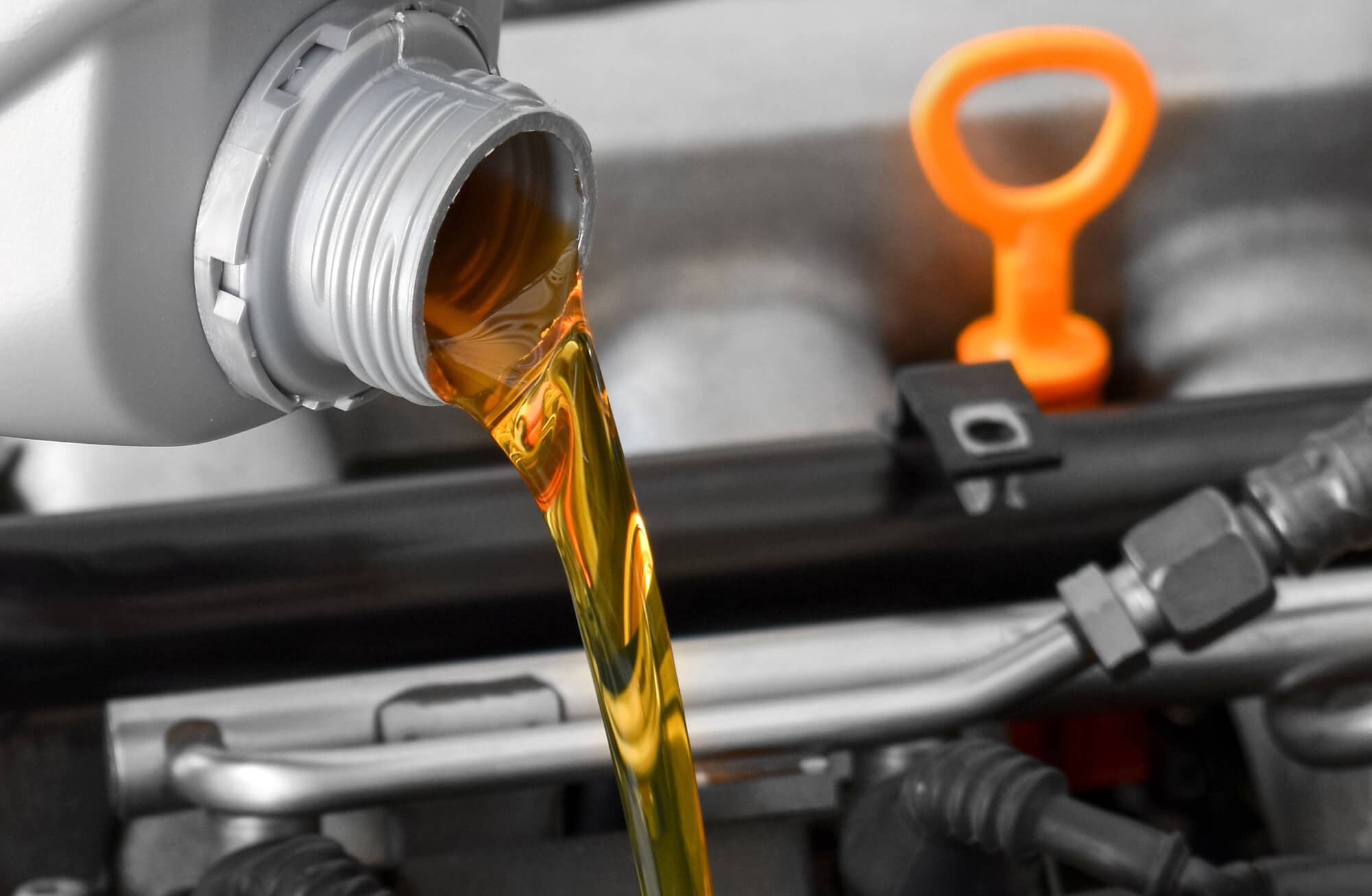Imagine this: a modestly modified car, already quick on its feet, is brought to a dyno tuning shop. The technician gets to work, meticulously fine-tuning the fuel maps, ignition timing, and air-fuel ratio. After a few hours of testing and adjustments, the car’s power output jumps by nearly 20%. That’s a huge leap—one that translates into a smoother, stronger, and more responsive ride. Stories like these are common in the world of dyno tuning, where precision and data-driven adjustments can make all the difference.
Dyno tuning is a powerful technique for optimizing engine performance. It enables significant improvements in power, efficiency, and drivability, transforming how vehicles perform and respond on the road.
Understanding the Dyno
What is a Dyno?
A dynamometer, or “dyno” for short, is a tool designed to measure force, torque, or power. In automotive tuning, dynos are crucial for understanding and enhancing engine performance. They allow technicians to monitor various engine parameters in real time, making it possible to pinpoint and address inefficiencies that might otherwise go unnoticed. By testing and tuning in controlled conditions, dynos reveal what a car is truly capable of.
Types of Dynos:
- Chassis Dyno: A chassis dynamometer measures power at the wheels rather than directly at the engine. Vehicles drive onto the dyno rollers, which simulate road resistance and load. This type is ideal for tuning adjustments in cars as they’re driven in real-world conditions, making it especially useful for high-performance and street cars.
- Engine Dyno: Engine dynamometers, on the other hand, measure the engine’s power output directly, bypassing the transmission and drivetrain. This allows for highly accurate measurements of engine-specific parameters without interference from external factors. Engine dynos are often used in professional racing and research environments.
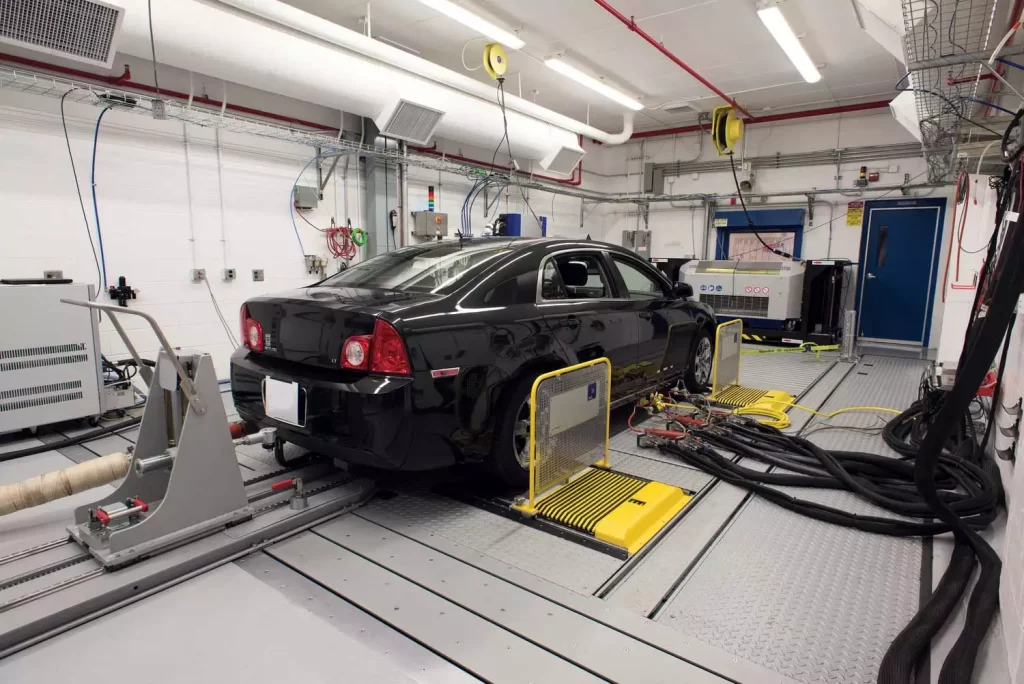
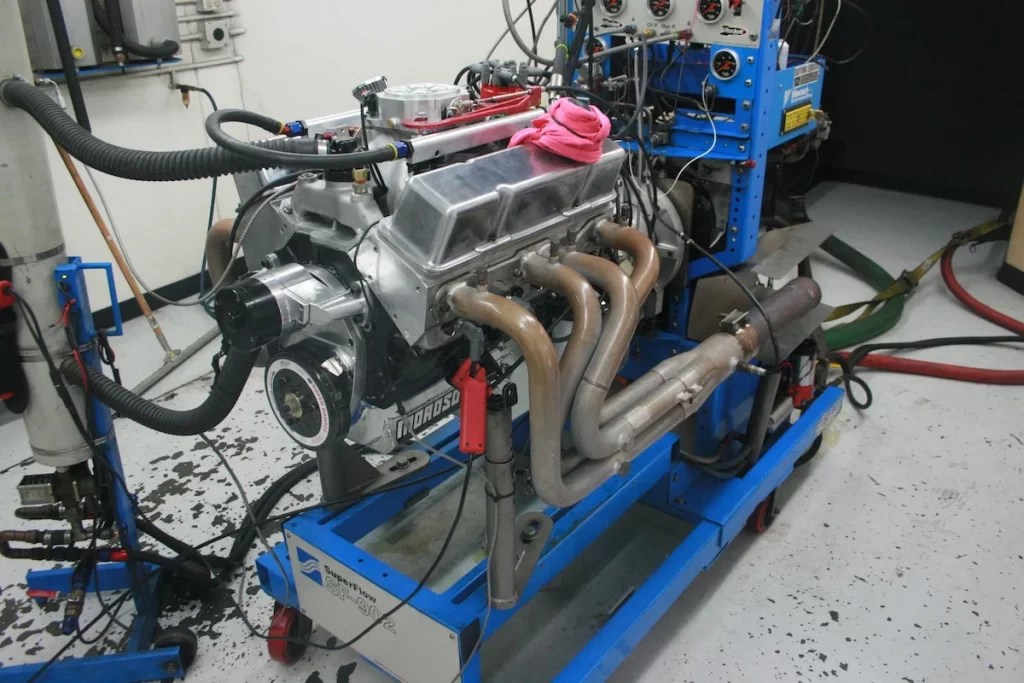
How a Dyno Works
Dynos operate by simulating real driving conditions while measuring the engine’s performance. During a dyno run, the car’s engine or wheels (depending on the type of dyno) are put under various loads, allowing the dyno to record data points like horsepower, torque, and RPM. As the car “drives” on the dyno, sensors capture data about exhaust gases, air intake, fuel pressure, ignition timing, and more.
Modern dynos come equipped with sophisticated data acquisition systems. These systems collect information from sensors placed on the engine or vehicle, which monitor temperature, air-fuel ratio, pressure, and other performance indicators. This data is then analyzed to reveal the engine’s efficiency at various loads and RPMs.
The Dyno Tuning Process
Baseline Dyno Run
The first step in any dyno tuning session is establishing a baseline measurement of the vehicle’s current performance. The tuner performs a baseline dyno run to capture the engine’s horsepower, torque, and other essential data points. This initial run provides a “before” snapshot of how the vehicle performs in its current state, identifying areas for improvement. It’s here that the tuner notes inefficiencies and imbalances in the fuel mixture, ignition timing, and air intake, setting the foundation for targeted tuning adjustments.
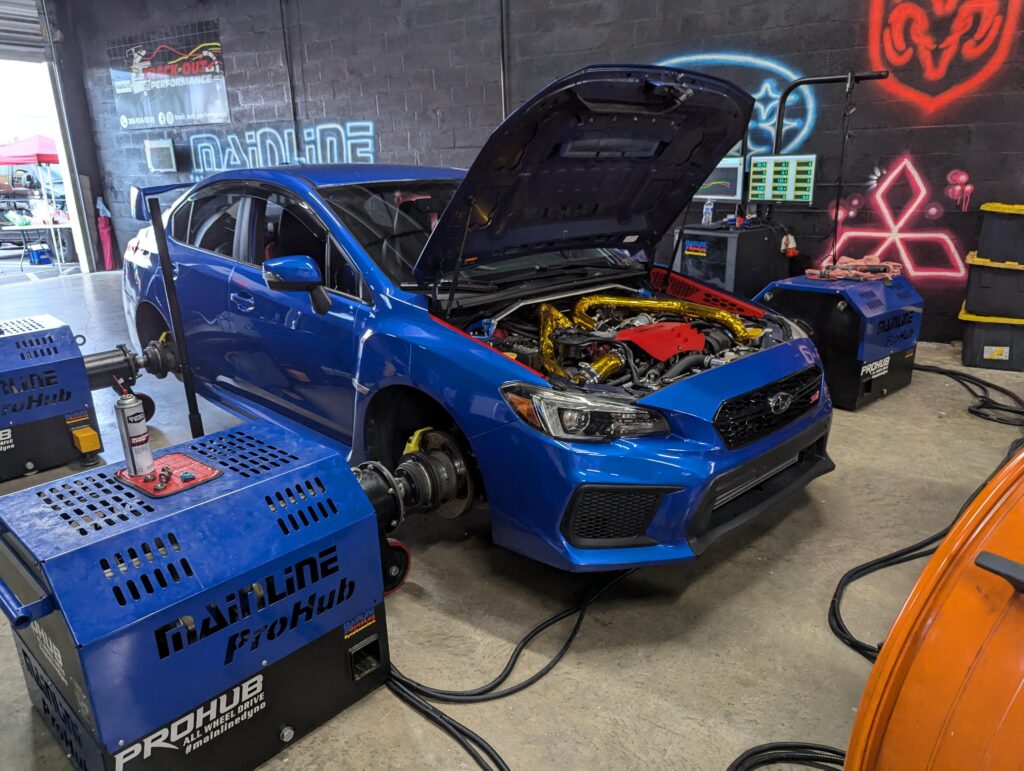
Tuning Strategies
Once a baseline is established, the tuning process begins. Here are the key areas typically adjusted in dyno tuning:
- Fuel Tuning: One of the primary goals of dyno tuning is to achieve an optimal air-fuel ratio, which ensures the engine burns fuel efficiently. By adjusting the fuel maps, the tuner can maximize power output and prevent the engine from running too lean or rich. Fuel quality also plays a significant role in tuning; higher-octane fuels can unlock more power in performance engines, allowing for more aggressive tuning without risking engine knock.
- Ignition Timing Tuning: Adjusting ignition timing is critical for optimizing the spark to ignite the fuel-air mixture at precisely the right moment. Correct timing can lead to notable improvements in power and efficiency, while poor timing can cause detonation or “knock,” which can damage the engine. Dyno tuning helps strike the perfect balance, achieving maximum power without risking engine health.
- Boost Pressure Tuning (for turbocharged and supercharged vehicles): In forced-induction engines, boost pressure is another vital variable. By fine-tuning boost levels, a tuner can increase horsepower and torque, making the car significantly faster and more powerful. However, boost tuning requires careful attention, as excessive pressure can strain the engine and compromise reliability. A professional tuner will find the balance between performance gains and safe operation, delivering a reliable boost in power.
Iterative Process
Dyno tuning is rarely a one-time adjustment. It’s an iterative process where the tuner performs multiple dyno runs, analyzing the data after each run and making precise adjustments as needed. This process of testing, adjusting, and re-testing ensures that every element of the engine’s performance is finely tuned. Data analysis is key here, as it helps the tuner make informed adjustments to optimize the vehicle’s output and responsiveness.
Benefits of Professional Dyno Tuning
Increased Power and Torque
A properly tuned engine can produce significantly more horsepower and torque, translating to better acceleration and higher top speeds. With dyno tuning, enthusiasts can unlock the full potential of their engines, enjoying a vehicle that performs as powerfully as it was designed to.
Enhanced Fuel Efficiency
While performance is often the focus, dyno tuning can also improve fuel efficiency by optimizing the air-fuel ratio. A well-tuned engine consumes fuel more efficiently, which not only saves money at the pump but also reduces emissions—a win-win for performance and the environment.
Smoother Power Delivery
One of the less obvious but equally important benefits of dyno tuning is a smoother power curve. A professional tune can eliminate power dips, hesitation, and other irregularities, leading to a vehicle that feels more responsive to throttle inputs and more enjoyable to drive overall.
Customized Tuning
No two vehicles are identical, even if they share the same make and model. Dyno tuning allows for a customized approach, tailoring the tune to the vehicle’s specific quirks, driver preferences, and intended use—whether for daily commuting, spirited driving, or track racing.
Problem Diagnosis and Troubleshooting
The dyno-tuning process often reveals underlying issues that may otherwise go unnoticed. From ignition problems to air-fuel inconsistencies, the detailed data captured during a dyno run can help a technician diagnose and address performance issues, ensuring the engine is in optimal health.

Choosing a Dyno Tuner
Finding the right dyno tuner is essential for achieving the best results. Here are key considerations:
- Experience and Expertise: An experienced tuner brings a wealth of knowledge and skill, understanding the intricacies of different engines and tuning techniques. Look for a tuner with a proven track record, as expertise is vital for effective tuning and troubleshooting.
- Quality Equipment: Accurate and reliable dyno equipment is crucial for precise tuning. A well-calibrated, modern dyno system ensures that measurements are accurate, giving the tuner the data needed to make effective adjustments.
- Customer Reviews and Testimonials: Researching feedback from previous clients can offer insight into a tuner’s reputation and reliability. Positive reviews are a good indicator of a tuner’s ability to deliver results and provide excellent customer service.
Conclusion
In summary, dyno tuning is an art and science that optimizes an engine’s performance, offering substantial gains in power, efficiency, and drivability. By addressing factors like fuel mixture, ignition timing, and boost pressure, professional tuners can unlock a vehicle’s full potential while ensuring smooth, reliable performance.
If you’re looking to take your car to the next level, consider dyno tuning as a worthwhile investment. Find a reputable, experienced tuner, and you’ll enjoy the difference every time you step on the gas.
